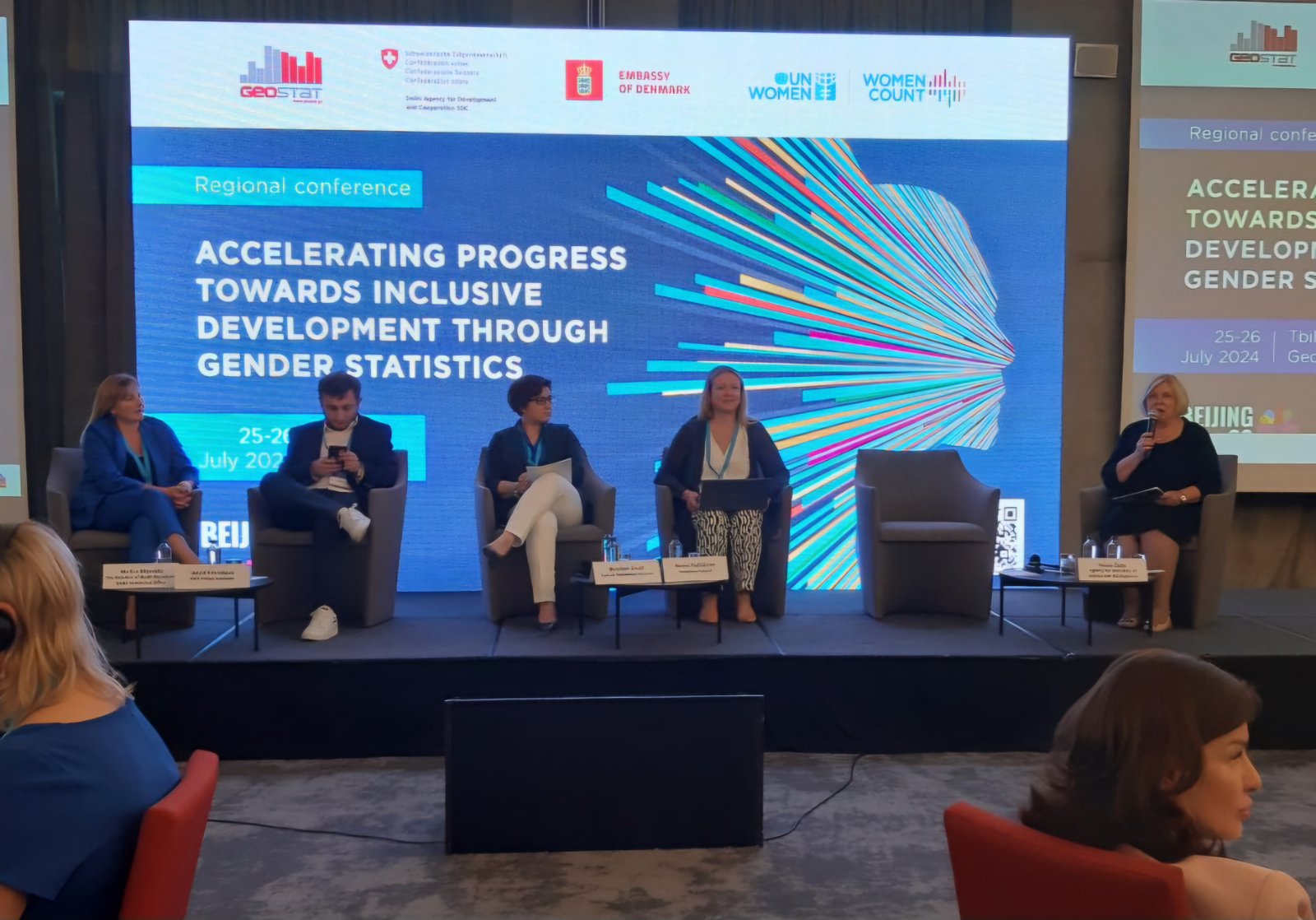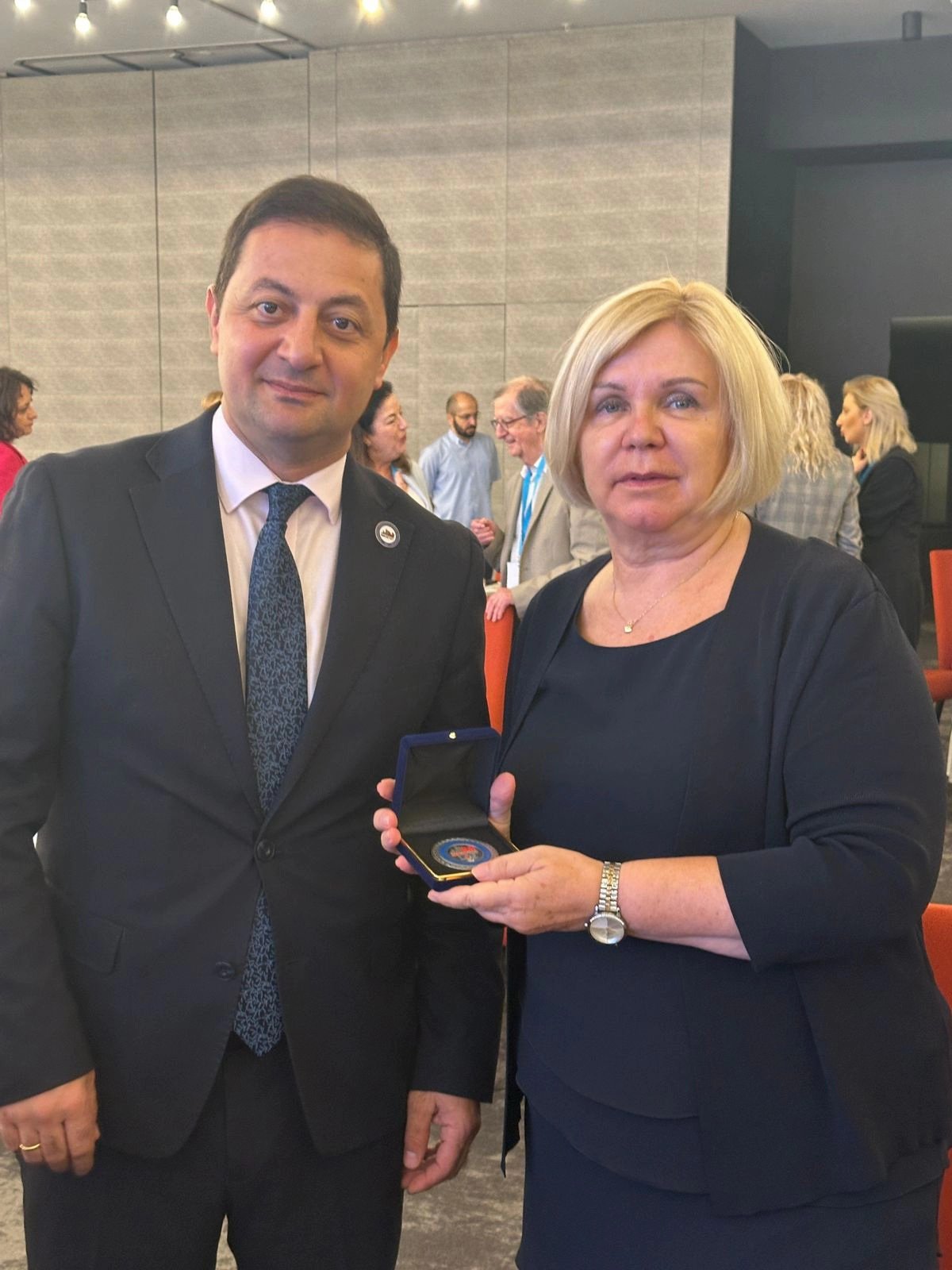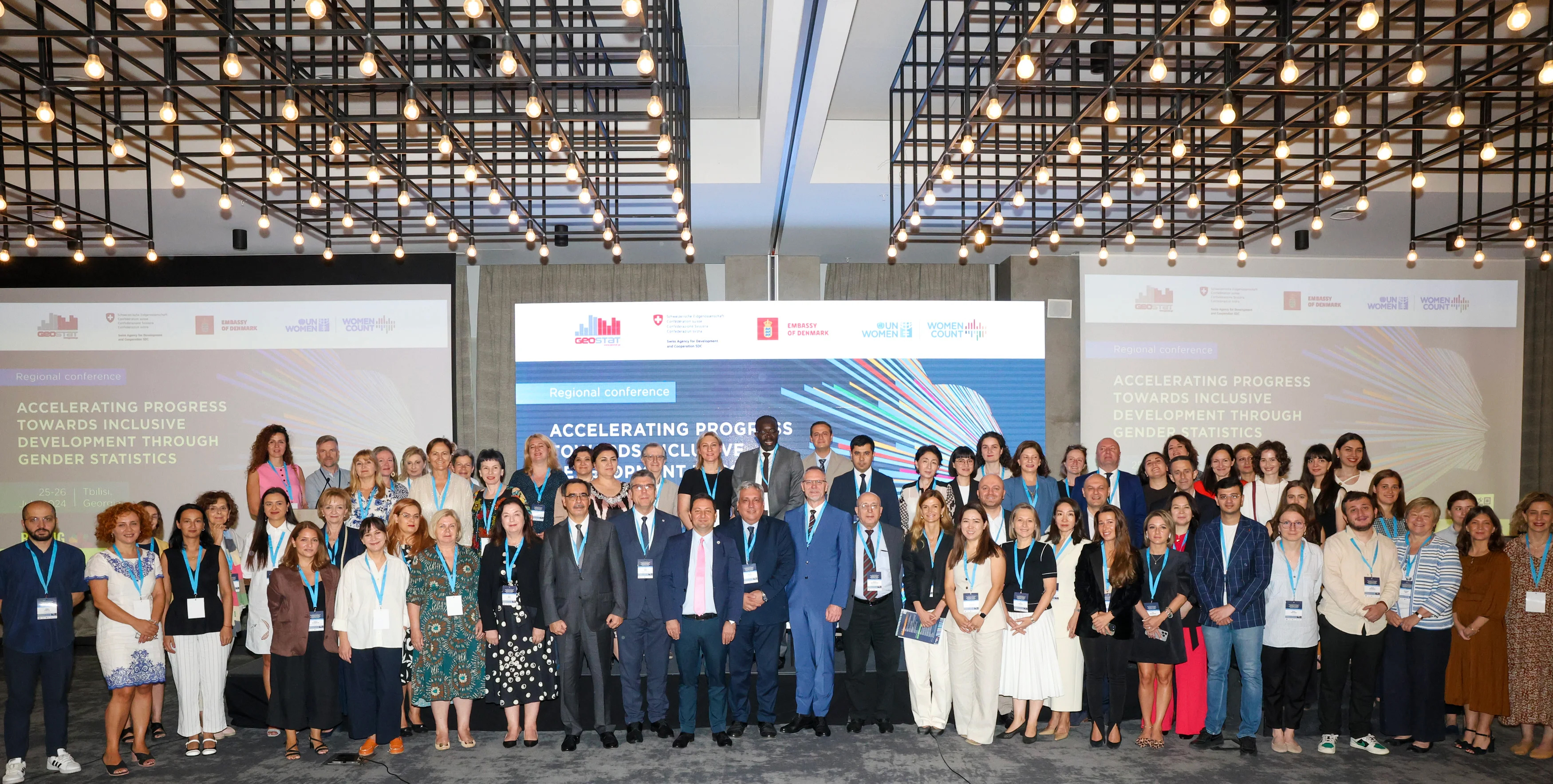Regional Conference in Georgia unites over 60 experts to Advance Gender Statistic for inclusive development in Europe and central Asia
On 25-26 July 2024, UN Women and the National Statistics Office of Georgia (GEOSTAT) hosted the second regional conference “Accelerating Progress Towards Inclusive Development Through Gender Statistics” in Tbilisi, Georgia.

The conference brought together over 60 senior statisticians and gender focal points from national statistical offices from across the Western Balkans, Türkiye, Eastern Europe, Caucasus, and Central Asia, as well as researchers, and policy makers from regional and international organisations.
Mrs Vesna Ćuzić, director of Agency for Statistics in Bosnia and Herzegovina and Mrs Radmilila Čičković, Deputy Director of Agency for Statistics in Bosnia and Herzegovina represented the Agency at the Conference.

“The regional conference celebrates the 105th anniversary of GEOSTAT and 25 years of collecting gender statistics in Georgia. Heads of statistical offices from 18 countries around the world are participating in the event. I would like to congratulate all statisticians on this day and thank them for their fruitful cooperation,” said Gogita Todradze, Executive Director of GEOSTAT, during his welcoming remarks.
The two-day conference aimed to enhance the knowledge of participants and share best practices and experiences on leveraging gender data and evidence for informed policy making on gender equality and the empowerment of women. Participants took stock of national strategies and practices for the collection and use of gender data for better policy making; shared progress made by countries to increase data availability in emerging areas such as violence against women, unpaid care work, gender pay gap, data disaggregation to ensure no one is left behind and unlocking the power of gender data communications.

Representatives of the national statistical offices also shared promising practices and experiences on the harmonization and improvement of measurements and use of gender data across the region to further enrich learning and peer exchange.
“Better gender statistics are essential for informed policies and improved lives. We need strong leadership from the National Statistical Office and the broader National Statistical System, along with gender-responsive planning, coordination, collaboration, and advocacy,” underlined Papa Seck, UN Women Chief of Research and Data Section, during his keynote speech. “Investing time and resources in these elements is essential for sustaining long-term progress.”
On the second day of the conference, Vesna Ćužić, Director of the Agency for Statistics of Bosnia and Herzegovina, moderated the panel "Gender Equality Index," where experienced experts from Finland, Turkey, North Macedonia and the South Caucasus shared their experiences and the challenges they face.

